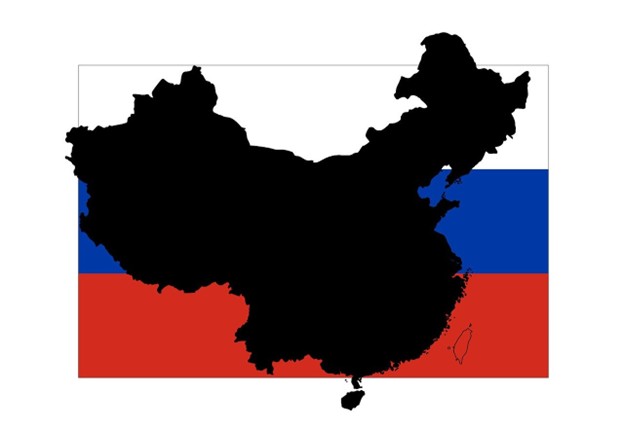Change is in the air and not only in Washington. A few decades ago, Russia was the dominant power in the communist world. Beijing relied on Moscow as a child depending on a parent for protection and nurturing. Those roles are reversed today. Western sanctions have limited Russia’s global engagements, especially its activities in the Arctic region. Since Russia’s invasion of Ukraine, China has expanded its involvement in the high north. In 2018 it proclaimed itself a “near Arctic state,” despite sitting 930 miles (1,500 km) from that region. Moscow’s unspoken concerns in 2025 are continuing to grow as developments between the two appear to indicate Beijing is expanding its behind-the-scenes activities in a likely attempt to emerge as the dominant Arctic power.
At first Putin welcomed China’s engagement given the restrictions that sanctions imposed on his country. As Beijing expanded its operations and redefined itself, Kremlin concerns increased and led it to oppose the near Arctic state characterization. “In 2020, the Russian Foreign Ministry’s special envoy in the Arctic Council at the time stated that Russia ‘disagree[d] with’ the characterization of the PRC as a near Arctic state, instead agreeing with then-U.S. Secretary of State Michael Pompeo that ‘there are two groups of countries—Arctic and non-Arctic,’” according to Paul Goble of the Jamestown Foundation. While he says Kremlin concerns are not the same as an immediate breakdown in relations, it may be possible for the West to exploit these differences in the future.
With Russia’s resources increasingly consumed by its ongoing war in Ukraine, it is likely that an ambitious China will continue to use the opportunity to move forward in the Arctic. Beijing is constructing new ice breakers and developing infrastructure in and along the Northern Sea Route (NSR) and beyond. Although public statements by the two states continue to be positive, there are indications that their shared interests have limits. Last November, the first meeting of the “Sub-commission on Cooperation on the NSR of the Russian-Chinese Commission for the Preparation of Regular Meetings of Heads of Government” was held in St. Petersburg. Tensions emerged as differences in their perspectives saw Russia concentrating primarily on security issues as in the past while China spoke explicitly about its economic approach on the NSR. Beijing claims economics leads any security interest it has in the region.
If the West is to combat China’s rise in influence in the Arctic, it needs to understand that the containment of one power may lead to a significant rise in the other. China may have plans to push Russia out of its dominant position in the Arctic. Observers, such as Vasily Koltashov, an expert at the Plehkanov University of Economics in Moscow, is highly skeptical that China will remain an ally of Russia’s. He suggests that China is gaining strength at Russia’s expense, according to Goble. Koltashov says that Moscow will remain allied only if it can control Beijing’s regional involvement. That will mean that China’s investments cannot challenge Putin’s position or exploit its deteriorating circumstances. He points out that Putin may not be able to stop events, and that Russia could be “transformed into the periphery of China.”
Koltashov is not alone in his viewpoint. Goble points out that other Russian analysts, although quieter in their predictions, also see the China challenge as a real concern for the Kremlin. In recent months there are an increasing number of Russian language articles discussing the challenge China poses to Putin and Russia. Discrepancies become evident when examining the level of Russian cargo traffic over the last year on the NSR. Moscow’s planned goals for maritime tonnage do not meet the actual tonnage of reported cargo traffic. Russia also failed to meet its predicted schedule for icebreaker construction, leading some analysts in Washington to call the NSR a “black hole” for the 2025 Russian budget.
If Putin backs off further, it opens additional opportunities for China’s aggressive Xi Jinping to decide to fill the gap. The Kremlin is unlikely to simply cede control of the Arctic to China. If Beijing continues to quietly and slowly move into a more prominent position, however, it may be able to achieve its long-term strategic gains in the region. Russia, in the end, may not be able to stop the security challenge to its sovereignty over the high north. The Trump Administration and other Western leaders need to consider that China and Russia may publicly speak in friendly terms, they may not always coordinate as allies. It is time to design an approach to containment that works for the free world.
Daria Novak served in the U.S. State Dept.
Illustration: Pixabay
